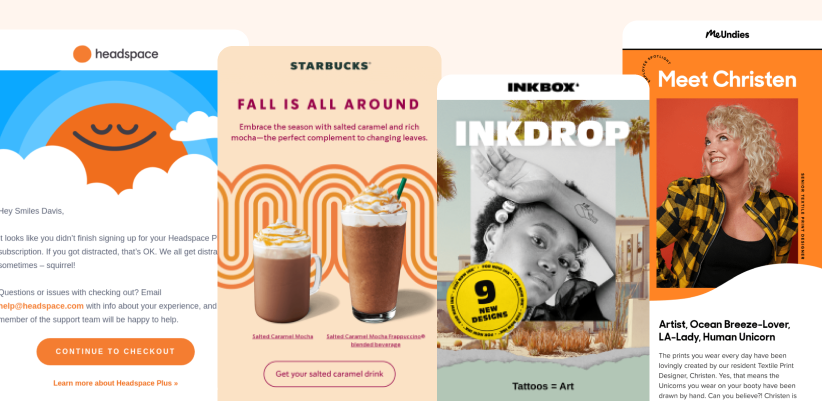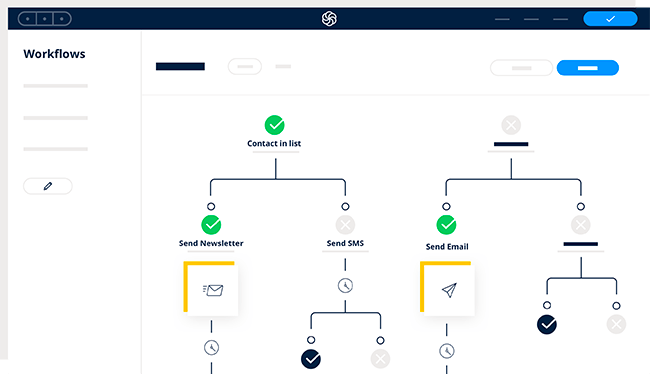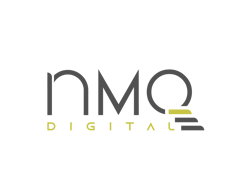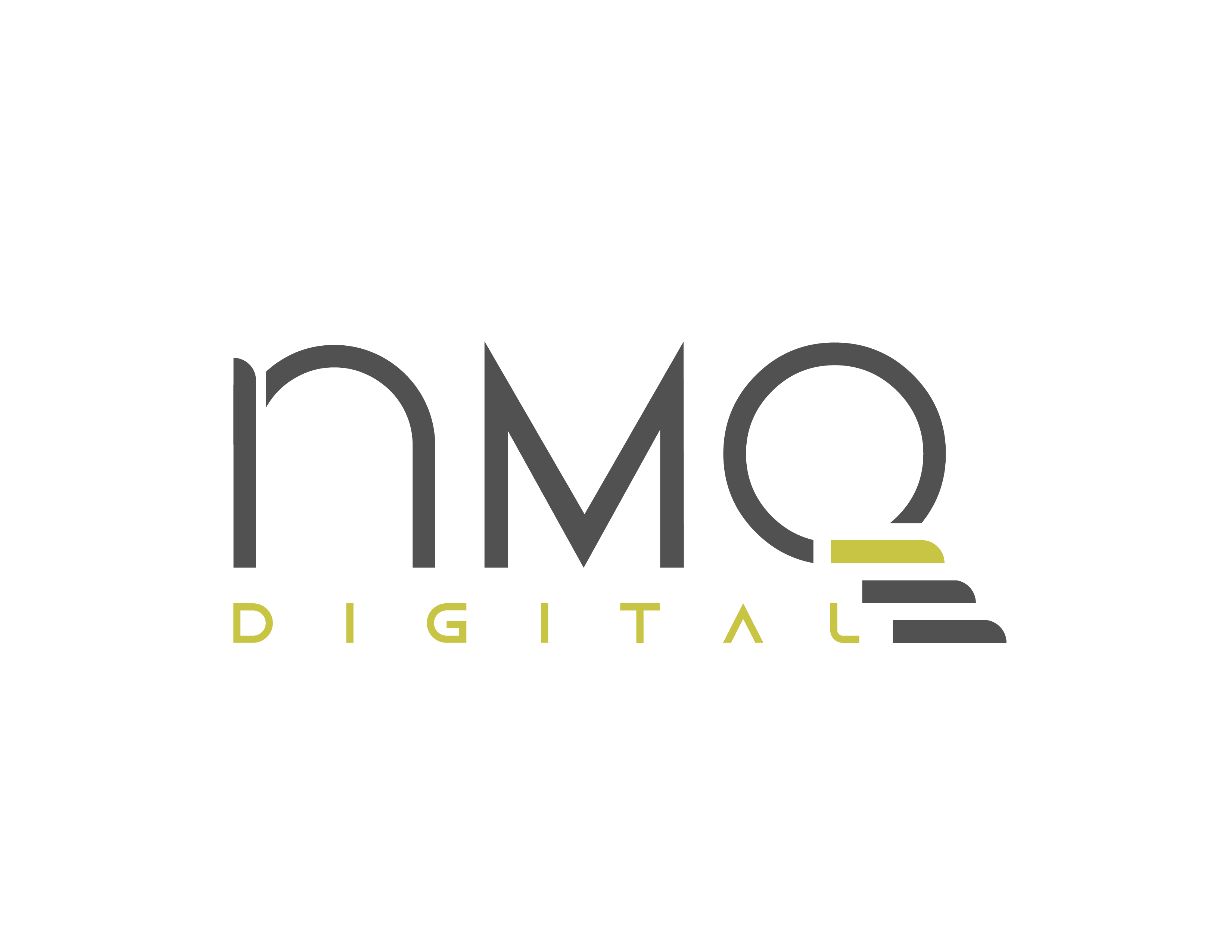In the dynamic landscape of digital marketing, where strategies constantly evolve, email marketing remains a reliable force for businesses seeking direct and effective communication with their audience. Email marketing provides a unique platform to nurture relationships, drive conversions, and build brand loyalty. A successful email marketing campaign involves the intricacies of crafting compelling messages, optimizing campaigns, and leveraging the power of this indispensable tool.
In this blog, we will focus on;
- What is Email Marketing?
- Email Marketing and Automation
- Common Types of Email Marketing
- Why Should Business Owners Consider Email Marketing?
- Email Marketing Platforms
What is Email Marketing
Email marketing is a dynamic and strategic digital communication method centered around sending targeted messages to a specific audience via email. Its primary goal is to build and nurture relationships with potential and existing customers, fostering brand loyalty and driving engagement. Through carefully crafted and personalized content, businesses can deliver relevant information, promotions, and updates directly to the inbox of their audience.

Email marketing encompasses a range of activities, including newsletters, promotional campaigns, and transactional emails, all designed to achieve specific objectives such as increasing sales, driving website traffic, or promoting brand awareness.
With its cost-effectiveness, measurable outcomes, and ability to reach a wide audience, email marketing stands as a cornerstone in the contemporary marketing toolkit.
Email Marketing and Automation
Email marketing automation revolutionizes traditional email campaigns by introducing a systematic and technology-driven approach to streamline communication processes.
At its core, email marketing automation refers to the use of specialized software to automatically send targeted and personalized messages to specific segments of a subscriber list based on predefined triggers or actions.

The core idea behind email marketing automation is to introduce a level of intelligence and adaptability into the communication process.
Rather than sending generic messages to an entire subscriber list, automation allows for a more personalized and targeted approach, addressing the diverse needs and preferences of individual recipients.
As a result, businesses can establish a more meaningful connection with their audience, fostering engagement and loyalty through automated yet highly relevant communication.
In essence, email marketing automation represents a paradigm shift in how businesses leverage technology to optimize their communication strategies for greater impact and efficiency.
Common Types of Email Marketing
Email marketing is a powerful tool for businesses seeking to engage and connect with their audience in a personalized and impactful way.
There are several common types of email marketing strategies, each serving distinct purposes in the overall marketing mix.
These diverse ranges of email marketing types allow businesses to build relationships, drive conversions, and enhance brand loyalty effectively.
Some of the types of email marketing can be followed below:
Newsletter Campaigns
 Newsletter campaigns involve sending regular updates and curated content to a subscriber base. These emails often contain a mix of industry news, company announcements, and exclusive offers. This method helps businesses stay top-of-mind with their audience, establish expertise, and nurture long-term relationships.
Newsletter campaigns involve sending regular updates and curated content to a subscriber base. These emails often contain a mix of industry news, company announcements, and exclusive offers. This method helps businesses stay top-of-mind with their audience, establish expertise, and nurture long-term relationships.
Promotional Emails
 Promotional emails are specifically designed to showcase products, services, or special offers. These emails aim to drive sales by enticing recipients with discounts, limited-time deals, or exclusive promotions. By creating a sense of urgency or providing unique incentives, promotional emails encourage immediate action from the audience.
Promotional emails are specifically designed to showcase products, services, or special offers. These emails aim to drive sales by enticing recipients with discounts, limited-time deals, or exclusive promotions. By creating a sense of urgency or providing unique incentives, promotional emails encourage immediate action from the audience.
Drip Campaigns
 Drip campaigns, also known as automated email sequences, involve sending a series of pre-scheduled emails to subscribers based on predefined triggers or actions. These campaigns are highly targeted and personalized, guiding recipients through a strategic journey. Drip campaigns are effective for lead nurturing, onboarding, and re-engaging inactive users.
Drip campaigns, also known as automated email sequences, involve sending a series of pre-scheduled emails to subscribers based on predefined triggers or actions. These campaigns are highly targeted and personalized, guiding recipients through a strategic journey. Drip campaigns are effective for lead nurturing, onboarding, and re-engaging inactive users.
Transactional Emails
 Transactional emails are triggered by specific user actions, such as a purchase confirmation, account activation, or password reset. Beyond their primary purpose, these emails provide an opportunity for additional engagement, such as recommending related products or inviting users to explore more features. Transactional emails contribute to customer satisfaction and can drive further interactions.
Transactional emails are triggered by specific user actions, such as a purchase confirmation, account activation, or password reset. Beyond their primary purpose, these emails provide an opportunity for additional engagement, such as recommending related products or inviting users to explore more features. Transactional emails contribute to customer satisfaction and can drive further interactions.
Segmented Email Campaigns
 Segmented email campaigns involve dividing a subscriber list into distinct segments based on specific criteria such as demographics, behavior, or purchase history. By tailoring content to the unique characteristics of each segment, businesses can deliver more relevant and personalized messages, significantly improving engagement and conversion rates. Segmenting allows marketers to target specific audience segments with content that resonates most with their needs and preferences.
Segmented email campaigns involve dividing a subscriber list into distinct segments based on specific criteria such as demographics, behavior, or purchase history. By tailoring content to the unique characteristics of each segment, businesses can deliver more relevant and personalized messages, significantly improving engagement and conversion rates. Segmenting allows marketers to target specific audience segments with content that resonates most with their needs and preferences.
Why Should Business Owners Consider Email Marketing?
Email marketing is crucial for both B2B and B2C businesses due to its cost-effectiveness, direct communication capabilities, and targeted marketing potential. It offers measurable results through analytics, allowing businesses to assess campaign effectiveness and make informed decisions. With automation features, businesses can save time and enhance customer experiences.
Email marketing builds and nurtures customer relationships, increases brand awareness, and serves as a powerful tool for driving traffic and sales, making it an indispensable component of a comprehensive marketing strategy for businesses in both B2B and B2C sectors.
As an overview, a business owner should consider email marketing as an integral part of their overall marketing strategy for several reasons:
-
Cost-Effective Communication: Email marketing is a cost-effective method compared to traditional marketing channels. It eliminates expenses associated with printing, postage, and advertising space. For businesses with limited budgets, email marketing provides an affordable yet impactful way to reach a wide audience.
-
Direct and Personalized Engagement: Email marketing enables direct communication with the target audience. By segmenting subscribers based on demographics, behavior, or preferences, businesses can deliver personalized and relevant content. This personalized approach fosters a stronger connection with customers, leading to increased engagement and loyalty.
-
Measurable ROI and Analytics: Email marketing platforms offer robust analytics that allow business owners to track the performance of their campaigns in real-time. Metrics like open rates, click-through rates, and conversion rates provide valuable insights, facilitating data-driven decision-making and ensuring a measurable return on investment (ROI).
-
Increased Conversion Rates: The targeted and personalized nature of email marketing often results in higher conversion rates. By delivering tailored messages to the right audience at the right time, businesses can prompt recipients to take desired actions, whether it's making a purchase, signing up for a webinar, or downloading content.
-
Customer Retention and Loyalty: Email marketing is an effective tool for customer retention. By nurturing existing relationships through regular communication, businesses can reinforce brand loyalty. This ongoing engagement helps to keep the brand top-of-mind, encouraging repeat business and long-term customer satisfaction.
-
Automation for Efficiency: Email marketing automation streamlines repetitive tasks, allowing businesses to set up automated campaigns triggered by user actions. This not only saves time but also ensures timely and consistent communication. Automated workflows, such as welcome series or abandoned cart emails, enhance efficiency and effectiveness.
-
Global Reach and Instant Delivery: With email, businesses can instantly reach a global audience. Messages are delivered to subscribers' inboxes within seconds, facilitating timely communication of promotions, product launches, or other time-sensitive information. This global reach is particularly advantageous for businesses looking to expand their market presence.
-
Integration with Overall Marketing Strategy: Email marketing seamlessly integrates with other elements of a comprehensive marketing strategy. It complements social media efforts, content marketing, and online advertising, creating a cohesive approach. Many email marketing platforms also offer integrations with other tools and platforms, enhancing overall marketing efficiency.
-
Adaptability to Various Business Goals: Email marketing is versatile and can be adapted to various business goals, whether it's driving sales, promoting new products, nurturing leads, or enhancing customer engagement. Its flexibility makes it suitable for businesses across different industries and scales.
In summary, business owners should consider email marketing as a valuable and versatile tool that not only offers cost-effective communication but also provides a direct, measurable, and personalized approach to engaging with their audience, driving conversions, and building lasting customer relationships.
Email Marketing Platforms
There are several email marketing platforms available, each offering a range of features to help businesses create, manage, and analyze their email campaigns. Here are some popular examples:
1: Mailchimp
Mailchimp is known for its user-friendly interface and offers features like drag-and-drop email builder, audience segmentation, marketing automation, and detailed analytics. It caters to businesses of all sizes, from small startups to large enterprises.
2: Constant Contact
Constant Contact provides a range of email marketing tools, including customizable templates, contact management, social media integration, and tracking analytics. It's designed to be user-friendly for small businesses and nonprofits.
3: HubSpot Email Marketing
HubSpot's email marketing platform is part of its broader CRM and marketing suite. It includes features such as contact segmentation, personalization, A/B testing, and automation. HubSpot's platform is suitable for businesses looking for an all-in-one marketing solution.
4: Marketo
Marketo is a marketing automation platform acquired by Adobe, providing tools for lead management, email marketing, and customer engagement. With a focus on personalization and analytics, Marketo is popular among medium to large enterprises for streamlining and optimizing their marketing campaigns.
5: Sendinblue (Brevo)
Sendinblue offers email marketing, SMS marketing, and transactional emails. It provides a drag-and-drop email builder, marketing automation, and robust analytics. Sendinblue is often chosen for its affordability and scalability.
6: GetResponse
GetResponse offers a comprehensive suite of email marketing tools, including autoresponders, landing page creation, webinar hosting, and marketing automation. It caters to businesses of all sizes and is known for its ease of use.
7: Campaign Monitor
Campaign Monitor provides email marketing software with features such as drag-and-drop email builder, personalized content, automation workflows, and analytics. It's known for its visually appealing templates.
8: AWeber
AWeber is a popular choice for small to medium-sized businesses. It offers features like autoresponders, email tracking, and a variety of email templates. AWeber is known for its customer support and educational resources.
9: ActiveCampaign
ActiveCampaign combines email marketing, automation, sales automation, and CRM features. It's suitable for businesses looking for a platform that integrates various aspects of customer engagement.
10: Benchmark Email
Benchmark Email offers an easy-to-use platform with features such as responsive email design, automation, and detailed analytics. It caters to businesses of all sizes and is known for its simplicity.
11: ConvertKit
ConvertKit is designed with content creators in mind, such as bloggers and YouTubers. It offers features like visual automation builders, customizable forms, and subscriber segmentation.
These platforms vary in terms of pricing, features, and target audience. Businesses should choose an email marketing platform that aligns with their specific needs, scale, and budget.
In a nutshell, email marketing presents a myriad of benefits for businesses seeking cost-effective and targeted communication strategies. Automation features streamline processes, saving time and ensuring timely and consistent communication. Measurable analytics provide valuable insights, enabling data-driven decision-making and the continual improvement of campaigns.
Overall, email marketing stands out for its efficiency, scalability, and adaptability, making it an indispensable tool for businesses of all sizes. If you need any support with your email marketing activities, NMQ Digital is here to support you with our CRM and Email Marketing services, which include creating, managing, and automating your email marketing campaigns.






